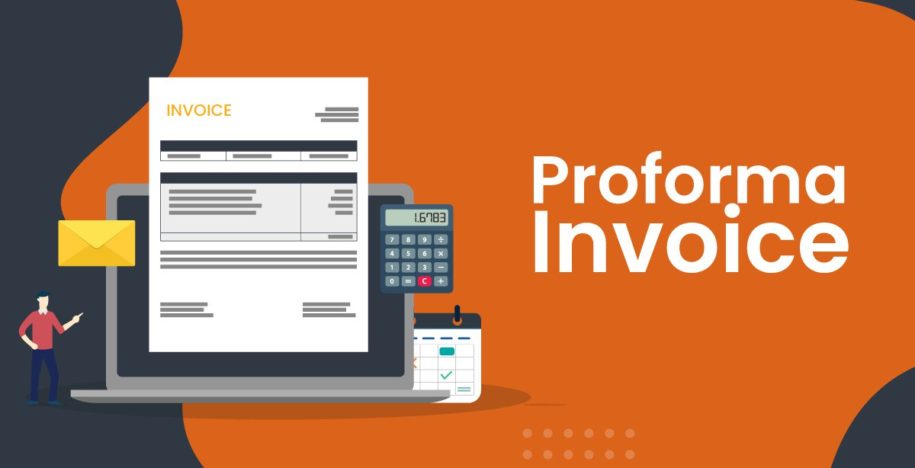As a business owner or accountant, you need to understand the difference between a pro forma invoice and a full invoice.
What Is a Pro Forma Invoice?

A pro forma invoice can be viewed as a proposal to a customer for services to be completed or goods to be delivered. It lists the work to be completed or the goods to be delivered and indicates a price to be charged when the work is finished or the goods are delivered.
A pro forma invoice is not a regular invoice and it cannot be used for accounting purposes. It is commonly used as a preliminary invoice or as a quote.
Pro forma invoices apply to services or goods that are not yet completed. This means that the invoices do not need an invoice number. Instead, the pro forma invoice outlines the goods and services that a seller can commit to performing or delivering.
The purpose of a pro forma invoice is to establish an agreement between the buyer and seller. Essentially, as a small business owner, you want to ensure that your customer understands what you are committing to provide them.
A company name, delivery date, list of goods or services, and price are commonly included in a pro forma invoice. There may be other terms and conditions indicated as well.
What Is the Purpose of a Pro Forma Invoice?
The use of a pro forma invoice helps to smooth the sales process. The business owner or sales rep can send one to give the buyer the information needed to make a decision on whether or not to purchase. This should be an invoice issued in good faith that allows the buyer to know what to expect from their purchase. It can act as a preliminary bill of sale.

Other uses of a pro forma invoice include:
- Declaring the value of goods for customs for a smooth delivery process if the goods are crossing international lines
- As a placeholder, if there isn't enough information to provide a customer with a full commercial invoice
- For an internal purchase approval process
Pro forma invoices may be used by a variety of businesses.
What Are the Key Differences Between an Invoice and Pro Forma Invoice?

While an invoice is a commercial instrument that states the total amount due, the pro forma invoice is a declaration by the seller to provide products and services by a specified date.
Definition
A commercial invoice is sent to a buyer after a sale has occurred. It is a request for payment from the buyer.
On the other hand, a pro forma invoice is a written proposal sent prior to billing. It provides the particulars of goods and services yet to be delivered. It is not a binding agreement, and cannot be used for bookkeeping purposes.
Issued Date
Under a commercial invoice, the issue date is done prior to payment being made.
However, a pro forma invoice is issued before order placement.
Purpose
The objective of a commercial invoice is to inform the buyer about the amount due for goods and services provided. It is legally binding, meaning that if it isn't paid by the buyer, the seller may seek remediation. It can also be used to provide an audit trail for accounts receivable and revenues.
The use of a pro forma invoice provides a buyer with an idea of what to expect. It can provide a description of the goods and a good faith estimate of costs.
Format
The format of a commercial invoice should include the logo of the business, contact information, billing address, information regarding the services provided or goods delivered, amount due, and relevant terms and conditions.
A pro forma invoice will include the logo of the business, contact information, billing address, an estimate of the services to be provided or the goods to be delivered, and the estimated amount of the bill. It should be clearly labeled as a pro forma invoice. Terms and conditions may be included as a precursor for performance on behalf of the vendor.

Accounting
A commercial invoice is used as the basis for paying a bill or earning revenue. It will be recorded in the general ledger as accounts receivable or accounts payable. This invoice should be filed for reference, and can also be used to support an audit. It may be requested by your tax preparer as evidence for revenue during the tax year.
A pro forma invoice gives your business a general idea of the amount of money that will be received by your company for services or goods delivered. If you are in receipt of a pro forma invoice from another business, it allows you to plan for how much is expected to be due if you accept the agreement. Thus, it is a good tool for cash flow planning, but it cannot be used for accounting purposes.
What Are the Benefits of Using a Pro Forma Invoice?

There are a few benefits to using pro forma invoices in your business. These include:
Providing Relevant Details Before Delivery
A pro forma invoice provides customers with the information on what they will be receiving prior to actually committing to purchasing the goods or services. Thus, your customers will have an idea of what to expect when they choose your company as a supplier.
Details included in a pro forma invoice include a list of all items or services to be purchased, the cost of each, the date of the purchase, and the expected delivery of goods.
Commitment from Both Buyer and Seller
A pro forma invoice indicates an informal level of commitment from both the buyer and the seller. The buyer understands what they will be receiving and has an estimate of the price as well as the expected delivery date. The seller understands their commitment and can plan their time or ensure they have the goods available to deliver.
Some companies use this as a purchase order. This can be helpful in establishing what may be necessary for them to get the sale approved and the final invoice paid.
Possible Negotiating Tool
Once a business receives a pro forma invoice, they have the ability to review it and decide whether the services to be provided or the goods to be delivered are appropriate and if they agree with the prices and delivery date. If they don't, the buyer may approach the seller to make potential modifications.
When Can a Pro Forma Invoice Be Required?

A pro forma invoice may be required in certain situations.
Provisional Bill of Sale Needed for Approval
A pro forma invoice provides your customers with a detailed account of the sale before its finalization. This can be necessary for your customers.
Most government agencies will require one to provide them with the details they need to get the final sale approved. Other companies may have a strict process for pro forma sales.
International Shipping Purposes
One of the most beneficial uses of this invoice type is for international shipping. It contains all the details needed to expedite clearing customs. Thus, many businesses use a pro forma invoice for international shipments. They may also provide customers with a standard invoice once the product has cleared.
Selling Items on Consignment
In cases where you are invoicing customers for items that have already been sold under consignment, a pro forma invoice can be helpful. The invoice acts as a device to send a preliminary invoice of sorts to your customer detailing items shipped. Afterward, your company can provide them with a regular invoice when the products or goods have been sold.
HappyAR is a seamless SaaS that quickly and easily boosts your accounts receivables work. We have simple monthly pricing that includes unlimited users and unlimited invoice escalations. There's no long-term contract and you can try HappyAR for free

